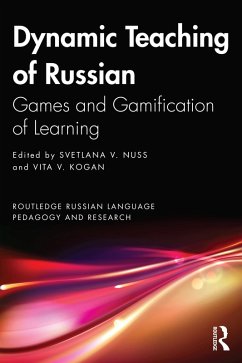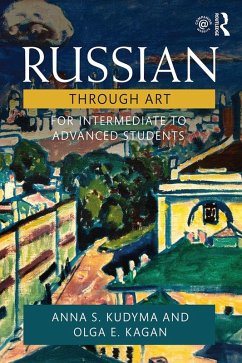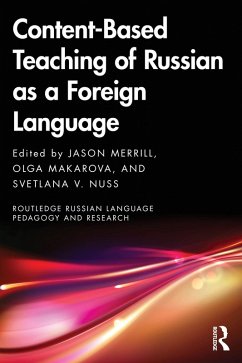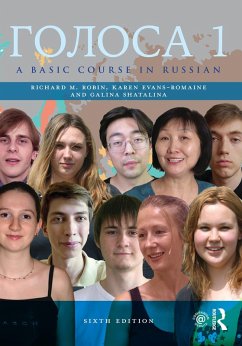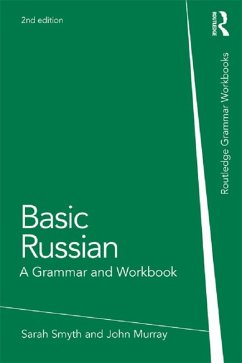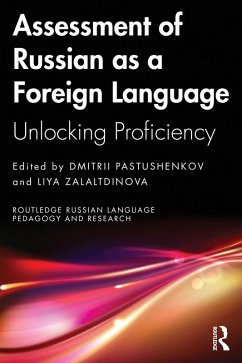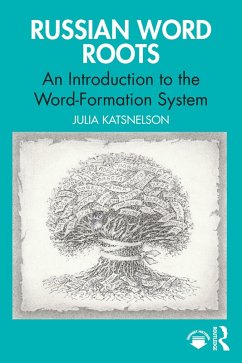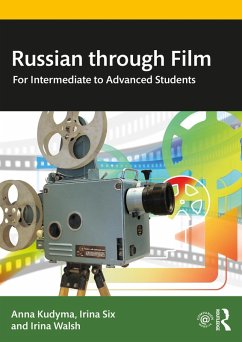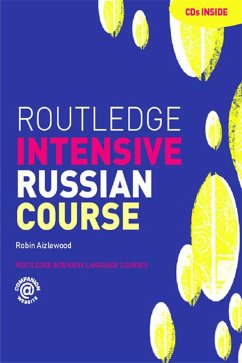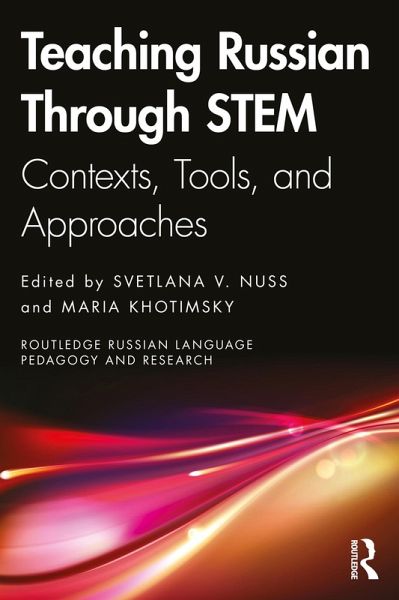
Teaching Russian Through STEM (eBook, PDF)
Contexts, Tools, and Approaches
Redaktion: Nuss, Svetlana V.; Khotimsky, Maria
Versandkostenfrei!
Sofort per Download lieferbar
43,95 €
inkl. MwSt.
Weitere Ausgaben:

PAYBACK Punkte
22 °P sammeln!
Teaching Russian Through STEM: Contexts, Tools, and Approaches addresses the growing demand for language courses that respond to the interests of students who are increasingly majoring in the fields of science, technology, engineering, and mathematics.This edited collection draws on the expertise of international contributors, addressing the challenges of teaching Russian as a morphologically complex language with a focus on vocabulary and syntax specific to STEM contexts. Through a variety of case studies, readers will access a theoretical foundation and practical examples of how to design an...
Teaching Russian Through STEM: Contexts, Tools, and Approaches addresses the growing demand for language courses that respond to the interests of students who are increasingly majoring in the fields of science, technology, engineering, and mathematics.
This edited collection draws on the expertise of international contributors, addressing the challenges of teaching Russian as a morphologically complex language with a focus on vocabulary and syntax specific to STEM contexts. Through a variety of case studies, readers will access a theoretical foundation and practical examples of how to design and implement content-based courses with a focus on STEM. The book explores the challenges and opportunities of teaching Russian in the context of STEM, providing educators with the tools and knowledge to create engaging and relevant language courses for today's students.
Teaching Russian Through STEM will be of interest to Russian language instructors, curriculum developers, and researchers in the field of Russian language pedagogy. It will be particularly valuable for those interested in innovating their language courses and aligning them with the growing demand for STEM education.
This edited collection draws on the expertise of international contributors, addressing the challenges of teaching Russian as a morphologically complex language with a focus on vocabulary and syntax specific to STEM contexts. Through a variety of case studies, readers will access a theoretical foundation and practical examples of how to design and implement content-based courses with a focus on STEM. The book explores the challenges and opportunities of teaching Russian in the context of STEM, providing educators with the tools and knowledge to create engaging and relevant language courses for today's students.
Teaching Russian Through STEM will be of interest to Russian language instructors, curriculum developers, and researchers in the field of Russian language pedagogy. It will be particularly valuable for those interested in innovating their language courses and aligning them with the growing demand for STEM education.
Dieser Download kann aus rechtlichen Gründen nur mit Rechnungsadresse in A, B, BG, CY, CZ, D, DK, EW, E, FIN, F, GR, HR, H, IRL, I, LT, L, LR, M, NL, PL, P, R, S, SLO, SK ausgeliefert werden.




